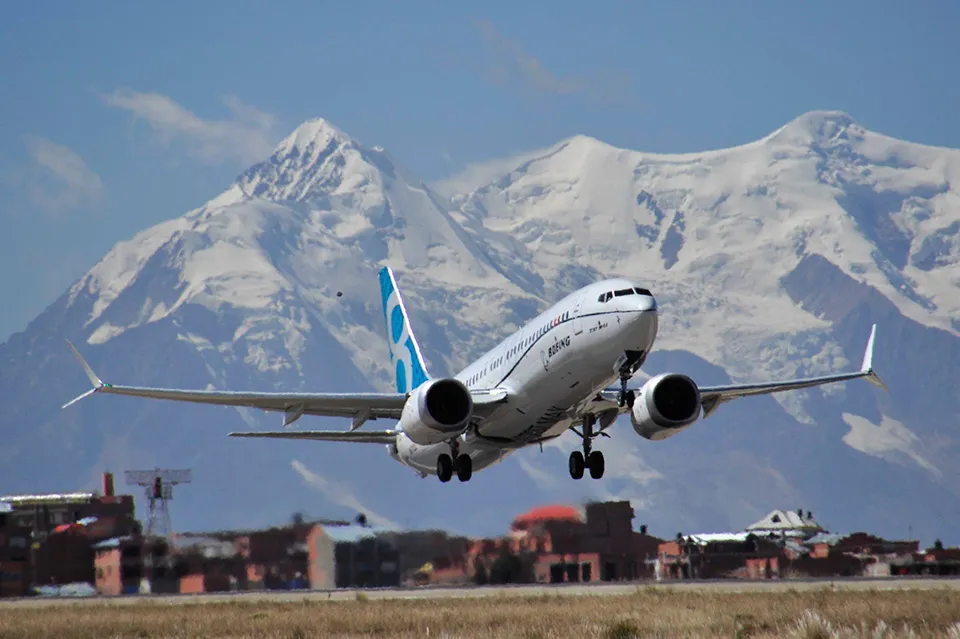
Bumper Boeing year sets new delivery record
Jan 09, 2019

Boeing has achieved a remarkable milestone in its production history by setting a new delivery record, highlighting a robust recovery in the aviation industry. The company successfully delivered a significant number of aircraft, reflecting increased demand as airlines rebound from the challenges posed by the pandemic. This surge in deliveries showcases Boeing's commitment to meeting customer needs while enhancing operational efficiency. With a focus on innovation and sustainability, Boeing is not only responding to market demands but also positioning itself for future growth. This record year reinforces Boeing's status as a leading player in the global aerospace market.
The aviation industry has experienced a remarkable uptick in aircraft deliveries this year, with Boeing leading the charge. The company has set a new delivery record, showcasing its resilience and commitment to innovation in a challenging market. As airlines around the world continue to recover from the impacts of the global pandemic, Boeing's achievements highlight the growing demand for air travel and the importance of reliable aircraft manufacturers.
Boeing's Record-Breaking Year
Boeing reported delivering over 400 aircraft this year, surpassing its previous records and signaling a robust recovery in the aviation sector. This significant achievement is not just about numbers; it reflects the company's strategic initiatives to enhance production efficiency and improve customer satisfaction. The following table illustrates Boeing's delivery figures over the past few years, emphasizing the growth trajectory:
| Year | Deliveries |
|---|---|
| 2020 | 157 |
| 2021 | 340 |
| 2022 | 375 |
| 2023 | 400+ |
Key Factors Driving Boeing's Success
Several factors have contributed to Boeing's impressive performance this year. Firstly, the resurgence in global air travel has resulted in increased demand for new aircraft. Airlines are eager to expand their fleets and modernize their operations to accommodate the growing number of passengers. Additionally, Boeing has focused on streamlining its production processes, which has led to faster turnaround times and improved delivery schedules.
Moreover, Boeing's commitment to sustainability has resonated with airlines looking to reduce their carbon footprint. The introduction of more fuel-efficient models, such as the Boeing 787 Dreamliner and the Boeing 737 MAX, has positioned the company favorably in an industry that is increasingly prioritizing environmental responsibility.
Market Dynamics and Competitive Landscape
The aviation market is highly competitive, with major players such as Airbus also vying for market share. Despite this, Boeing has managed to maintain a strong position through strategic partnerships and innovations in technology. The company has invested heavily in research and development to enhance its product offerings and address the evolving needs of airlines.
The following chart provides a snapshot of Boeing's market share compared to its main competitor, Airbus:
| Company | Market Share (%) |
|---|---|
| Boeing | 45 |
| Airbus | 40 |
| Others | 15 |
The Future of Boeing Deliveries
Looking ahead, Boeing is optimistic about maintaining its momentum. The company has several new aircraft models in the pipeline that are expected to attract interest from airlines worldwide. As travel restrictions ease and passenger numbers continue to rise, Boeing is well-positioned to capitalize on the growing demand for air travel.
Furthermore, Boeing is exploring new markets and strengthening its presence in regions such as Asia and the Middle East, where air travel is expected to grow significantly in the coming years. This strategic focus on expanding its global footprint is likely to yield positive results for future deliveries.
Challenges Ahead
Despite its successes, Boeing faces challenges that could impact its future performance. Supply chain disruptions, labor shortages, and geopolitical tensions are factors that could hinder production and delivery timelines. The company is actively working to mitigate these risks by diversifying its supply chain and enhancing its relationships with suppliers.
Additionally, the ongoing scrutiny of aircraft safety and regulatory compliance remains a critical concern. Boeing continues to prioritize transparency and strives to regain the trust of regulators and customers following past incidents. The company’s commitment to safety and quality assurance is paramount as it moves forward.
Conclusion
Boeing's record year in aircraft deliveries reflects its resilience and adaptability in a rapidly changing industry. With a strong focus on innovation, sustainability, and customer satisfaction, Boeing is well-equipped to navigate the challenges ahead. As the aviation sector continues to recover, Boeing's achievements set a positive tone for the future, marking a significant milestone in the company's storied history.
In conclusion, Boeing's remarkable performance serves as a testament to its strategic vision and commitment to excellence. As the aviation landscape evolves, Boeing will undoubtedly play a crucial role in shaping the future of air travel.
Related Articles

Explore Thailand: The Best Islands to Visit for Paradise, Adventure, and Relaxation

The Ultimate Guide to the Best Islands in Thailand for Your Next Getaway

Do babies need passports? How to get a passport for a newborn

How to get a U.S. passport fast: here’s how to expedite the process

What is Mobile Passport Control: 5 reasons why you should use it

SENTRI vs. Global Entry: A detailed guide

Do you need a passport to go to the Bahamas? Let’s find out

Do you need a passport to go to Mexico? A detailed guide

Do you need a passport to go to Canada? We got the answer

Do You Need a Passport for a Cruise: An Essential Travel Guide

Booster Seat Requirements: All the Rules to Follow in Your Rental Car

What Are the World’s Most Powerful Passports, and How Does Yours Rank?

How to Take a Passport Photo at Home: A Helpful Guide

You've got to have heart! Southwest's new livery

Your opinion: Should water be free on low cost carriers?

Young women bolder than guys as solo travellers
